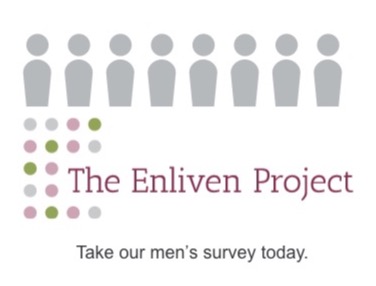If you have entered into conversation and dialogue about the issue of sexual violence, you may have heard the term “rape apologist.” While this term hasn’t yet made it into Webster’s Dictionary, an apologist is someone who “makes a defense in speech or writing of a belief or idea.” A rape apologist is term used by some to describe an individual who defends a rape myth, like a victim is to blame for a sexual assault.
Lots of people say and do things that reflect ignorance or misunderstanding about sexual violence. Most people don’t apologize on behalf of rapists. And most people don’t think that rape is actually okay.
That’s why the term rape apologist really gets under my skin. First, it’s name calling. Second, it infers a sense of conspiracy on behalf of some unknown tribe of apologists who are seeking to undermine the very concept of rape and sexual violence. Third, it turns a behavior or attitude into a permanent character trait. And finally, it’s a term of extremism that shuts down conversation rather than opening it up.
Sometimes it’s easier to write people off completely than to consider the role you might play or not play in shaping their opinions and perspectives on the world. But it’s really not that hard to avoid name-calling, and it’s really not that hard to start to engage someone in real dialogue – even about something as sensitive as sexual violence.
Here are a few things to consider:
What did the person actually say or do?
Do you even know? Many times, you might hear about an “offensive” comment second or third-hand. Go directly to the source. Find out what the person actually said or did, whether it’s someone you know well or someone high-profile. Take a look at their exact comments or actions before piggy-backing on someone else’s rush to judgment. If it’s someone you know, approach them in a non-confrontational way
Did they actually say that rape or sexual abuse was okay? Did they say that the victim deserved to be sexually assaulted? Or did they ask whether the victim was drunk or make a comment about how it’s dangerous to be out late at night?
Why did they say or do it? What did they mean to say or do?
There’s a really easy way to get at this. Simply ask them, “What did you mean by that comment?” This is particularly important if it’s something on social media, text, or a comment made in passing. Some people are more careful in their language than others. Sometimes you use the wrong word or phrase (ever call someone by the wrong name?). You want to get at the belief that led to the comment itself, instead of assuming you know why someone made a comment you disagree with.
For example, sometimes people use language that could be interpreted as victim-blaming language to make themselves feel safe from sexual assault. If we can find something that the victim did that made the sexual assault happen, then we don’t have to be as scared that it will happen to us.
I hate having my intentions questioned. I think it’s really arrogant when people assume they know more about why I did or said something than I do. If you don’t understand what I mean, just ask me and I’ll tell you. The same goes for most folks.
Most people have good intentions, not bad intentions. So if there is a way to interpret their words or actions to a more positive end, why not try that interpretation first?
Do you know everything about the individual’s personal history that might inform their perspective, including whether or not they are themselves a survivor of sexual violence?
Oftentimes, survivors of sexual violence internalize societal myths about rape and sexual assault, and blame themselves for what happened to them. Given that 16-25% of Americans have survived some form of sexual violence, use a little compassion - you might be hearing a reaction from someone who is themselves traumatized or facing any number of legitimate reactions and emotions related to their personal experience.
I thought about this possibility in the wake of the ire against Serena Williams for comments she made about the sexual assault in Steubenville, OH. The quote that sent people up in arms was made almost in passing when a story about the case came onto the television. She questioned how the girl could have gotten so drunk, and thought she shouldn’t have “put herself in that position,” but didn’t define what that position was. Sure, she could have been passing judgment on the victim, and minimizing the impact of sexual violence. But it was such a short exchange with the reporter that clearly didn’t capture her entire worldview and personal history on the subject. Her comments just as easily could have been an out-loud processing of something that happened or almost happened to her or someone she knew. Why jump to the conclusion that she’s blaming the victim? Why not instead ask her to engage in deeper, non-defensive dialogue about sexual violence?
Do you know everything about the individual’s family upbringing or cultural context that might inform their perspective on sexual violence?
We are all victims of myths and misperceptions of rape, whether a rapist, a survivor, a family member, or friend. That’s the tricky thing about culture – it’s all but invisible. And we all unwillingly and willingly enforce it.
When we are trying to change our own patterns and beliefs, we have to be patient and compassionate with ourselves. We owe that same patience and compassion to others who likely find rape horrific and scary and something that they don’t want to think about even though it’s in their backyard.
What is your intention in the conversation?
If your intention is to shame or insult them, then by all means, call them a rape apologist. Though I might suggest calling them a name that is more commonly recognized as an insult, like jerk or moron. If your intention is to escalate an interaction into an argument, then again, go ahead.
But if you want to increase awareness and reduce the intensity of our culture’s myths and misperceptions, you have to dig deeper and look for a teachable moment, not a punishable moment. We don’t help others learn or reconsider their perspectives by insulting them. And if we have the power and capacity to engage, we can and must.
I’ve never changed anyone’s mind by starting off the conversation with an insult – direct or implied. If you are an activist or anti-sexual violence organization that makes rape apologists the enemy or doles out insults as a part of your crusade on the issue, you may also be well-intentioned. But you are missing out on an opportunity to engage humans in real conversations about their beliefs, culture, and family experience that has shaped their views about sex, sexuality, power, and consent.







I know of no one, save Todd akin, touring debate circuits, arguing for the legitimacy of rape, how only by raping can we establish morality. No one is putting on expensive suits in order to spend 2 hours arguing in favor of rape. This is the dumbest shit I’ve seen in quite some time. Call them whatever you want, just not rape apologists, it undermines your entire argument, if you even have one. Perhaps you’d be better off calling them rape deniers?
“Lots of people say and do things that reflect ignorance or misunderstanding about sexual violence. Most people don’t apologize on behalf of rapists. And most people don’t think that rape is actually okay.”
But that isn’t what rape apology is. Rape apology isn’t necessarily or only about defending rape, it’s also about adopting an attitude of incredulity towards those who claim to be raped, or towards the frequency or severity about rape. From Rational Wiki: “Rape apology is an umbrella term for any arguments suggesting that rape is infrequent, misreported, over-reported, not that big a deal, or that it is even excusable in some circumstances, such as within a marriage or if the victim was “provocatively dressed”. “Apology” in this case means defense or justification, like in “Christian apologetics”, and not a statement expressing regret.”
For example, the Bill Cosby rape allegations have brought out a lot of internet trolls who express doubt or outright dismissal of over 30 women who have come forward to share their experiences. They demand “evidence” and characterize all the women as crazy and part of a radical feminist agenda. That’s part of rape apology too.
This is a bullshit soft line on rape apology. Name calling? Rapist apologist is the term, but I can just as clearly tell you “your’re apologizing for a rapist.” Of course it’s not going to make you feel good, but it’s not an insult or name calling. I don’t disagree that its important to keep in mind someone’s intention and personal history, but that doesn’t mean they can just go saying any sort of hateful shit they want (intentionally, or ignorantly) without meeting negative reaction.
I will not make excuses for rapists or rapist apologists, or even rapist apologist apologists.
This 100% omg. Ily
well done. The idea of rape and the heinous cruelty of sexual assault burns away in the brain, and being falsely accused naturally, inflames as well. My former gf has been raped. Years later, as a teacher, it became a game among some of the female students to accuse me of being some sort of pervert. It literally ruined whatever was left of my career. I simply disappeared from the school district and few of my former colleagues bothered to find out why. I have never been able to tell my story on this and I have to catch myself from being enveloped in the anger and resentment that comes from it. Your level headed advice above is refreshing and I applaud you for it.
I usually don’t leave comments but I’m doing it for you because this article is so well written it should be a PSA.
Good advice for all of your “Crucial Conversations”
Great article! Big proponent of the constructive argument, instead of the shutdown.
This is probably the best writing I’ve ever read on the issue. Thank you for putting this into words.